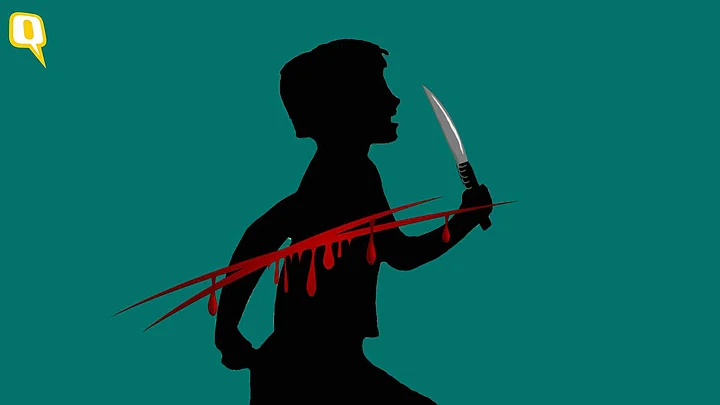“Mummy-papa”
This two-word response from a 7-yr-old boy left a 21-yr-old Jaya (name changed) cold one afternoon. A decade later, she still finds that incident unnerving. As a young nursery teacher at an orphanage, Jaya was taken aback when three girls of her class complained about their classmate. “He mounts us each night and moves his body. We can’t sleep.” The orphanage at the outskirts of Delhi, her first-ever workplace, housed children of different ages. All little children, girls and boys, slept in the same dormitory. The older children were housed in gender-segregated dormitories.
Too busy to read? Listen to the podcast here:
Jaya had called the boy to demonstrate what his classmates had accused him of. Much to her shock, the boy promptly pinned one of the girls down and began to rub his body against her vigorously. He then got up, smiling. When Jaya asked where or who he had learnt that from, the boy sheepishly said, “Mummy Papa”. His parents were daily-wage earners who had put the boy in the orphanage to ensure he got three square meals and some education.
One is tempted to link Jaya’s experience at the orphanage to the recent newspaper headlines on crimes committed by minors. The Ryan school murder, or a four-year-old raping another four-year-old, or those countless cases of bullying that often escalate catastrophically – are our children growing more violent than ever before? The NCRB data backs this belief. Within a matter of four years between 2010 and 2014, juvenile crimes registered under the Indian Penal Code (IPC) rose by 47%.
Who’s Stealing Our Children’s Innocence?
Or, is there an inherent, untainted innocence present in children to begin with?
Two decades back, Dr Eliot Sorel, then president of the World Association for Social Psychiatry, attempted to answer this question in a Washington Post interview.
But there are some kids who are beyond that, who seem, no matter what you do, unable to control their behaviour…They seem to lack the superego {the part of the psyche that is supposed to represent the internalisation of parental conscience and societal rules} and consequently have no way to put the brakes on their behaviour.Eliot Sorel, Psychiatrist
Explaining what spawns such behaviour, Dr Sorel added, “So we have a convergence of two trends: the dissolution of the basic social matrix, including family, coupled with an electronic technology that teaches violence without {observable} consequence.” And then he stated what is now staring us in the face:
You cannot keep exposing young children to these twin assaults without having some of them deciding to try it. We can’t ignore what we’re doing to our children.Dr Eliot Sorel, Psychiatrist
His words were true for the American children in 1996, they are true for the children of India in 2017. After each deviant act of violence perpetrated by a child, we obsess about the carceral aspect of the issue – whether justice would be served should the guilty minor be charged as an adult. In a society which makes a virtue out of cruelty towards children – the “spare the rod spoil the child” cult – this is largely unsurprising.
When Nurture is Inadequate
The discourse, then, veers back towards the classic nature-nurture debate. Sushma Seth (name changed), head of the junior wing of a reputed, and expensive, school in Noida says:
As educators, it concerns us deeply to notice streaks of violence in some children. In many cases, such children come from disturbed families. Abusive parents, neglect in formative years, or even a domineering sibling could make children violent. Hard as we may try, school hours can not always mitigate the damage caused to the child at home. We try to counsel both the child and parents. Sometimes it works, sometimes it doesn’t.Sushma Seth (name changed)
Seth’s school tries to keep parents/guardians involved in their ward’s activities in school through weekly updates and regularly hosted PTMs. Ironically, in the Ryan International School case, the fear of the PTM, allegedly, led the accused to kill another child.
The Gordian Knot
Parents are scared, too. Not only are they concerned about the safety of their children, there’s a hint of scepticism around what the same children could do to others. Reshma (name changed) says:
My husband and I work long hours. It is not possible to replicate the model of hands-on parenting my generation got. Yes, the kids are dangerously exposed to the adult world and sometimes the lines are deliberately blurred because it is inconvenient for parents to dedicate time and space only for kids. We try to do our best. When my 10-year-old son talks about his park fights, it scares me a bit. He’s not violent but who knows when that stops being the case.Reshma (name changed), Parent
Sweeping statements can easily be made about parenting. Easier still to slot parents into good, bad and indifferent. What demands rigour, and intelligence, is analysing the fundamentals of parenting: what do we want our children to be? And do we have the wherewithal to sustain our expectations? Do the society and the State happen to be on the same page? To assure quality education to their son, Reshma and her husband need to work long hours. After all, the ID card of Seth’s school comes with a heavy price tag. Yet, nobody – educator, parent or child – seems to be satisfied with the arrangement.
Children are falling through the cracks in our structures of parenting and education – with nobody to catch them.
